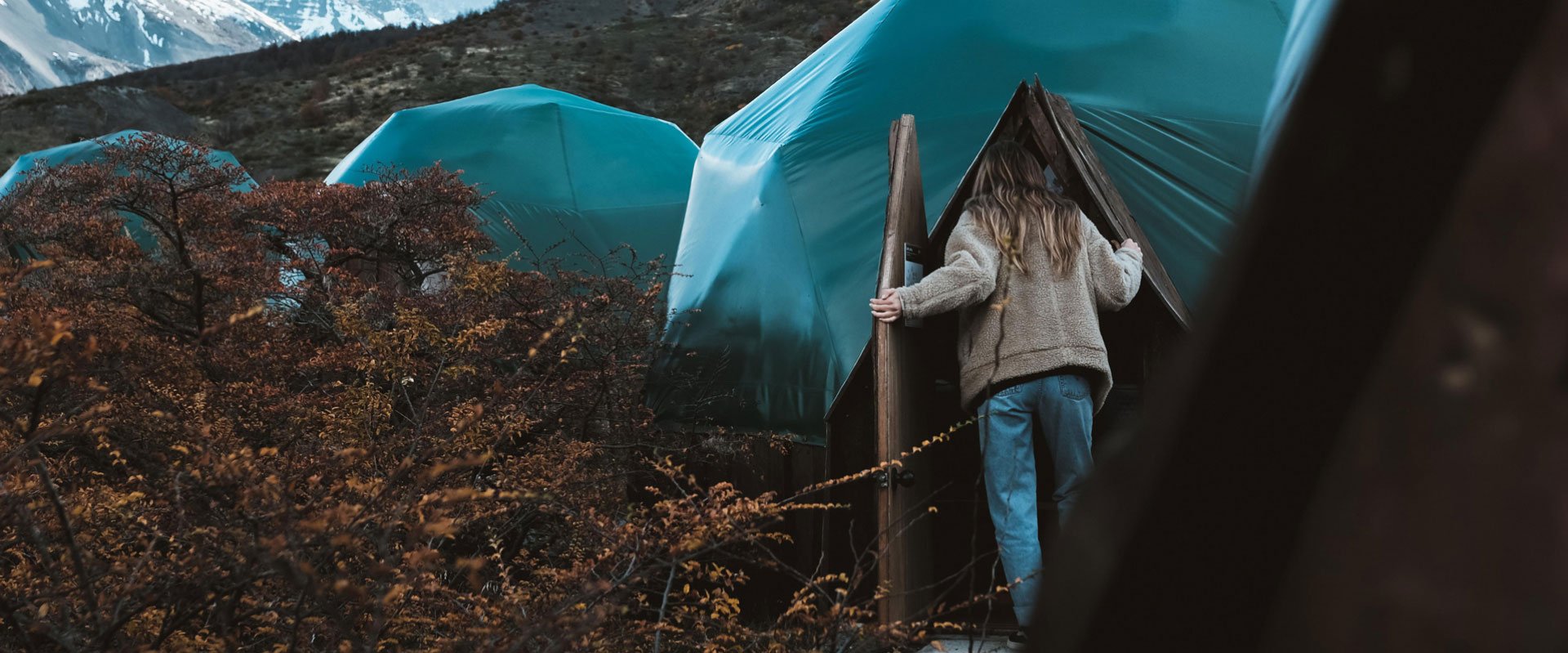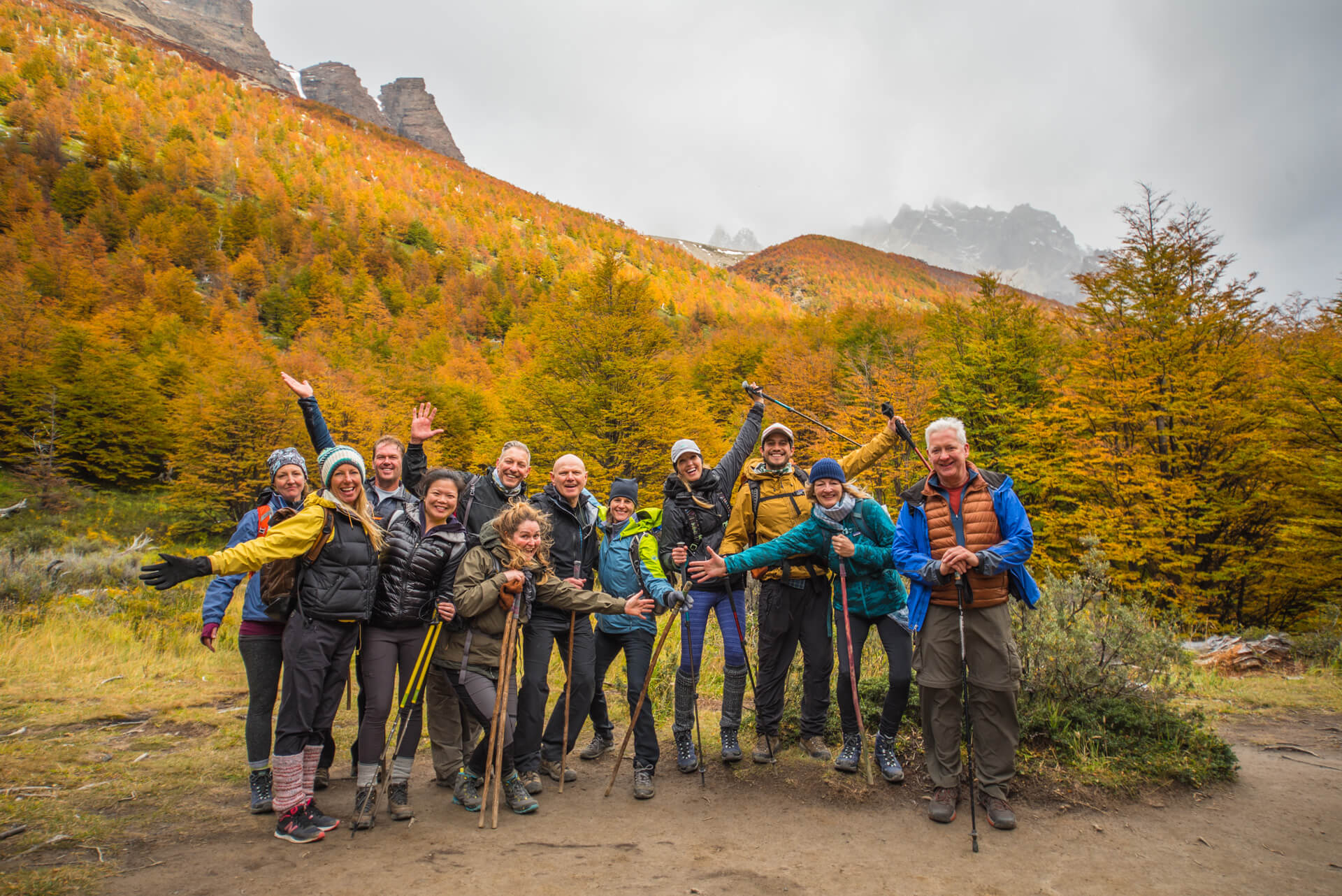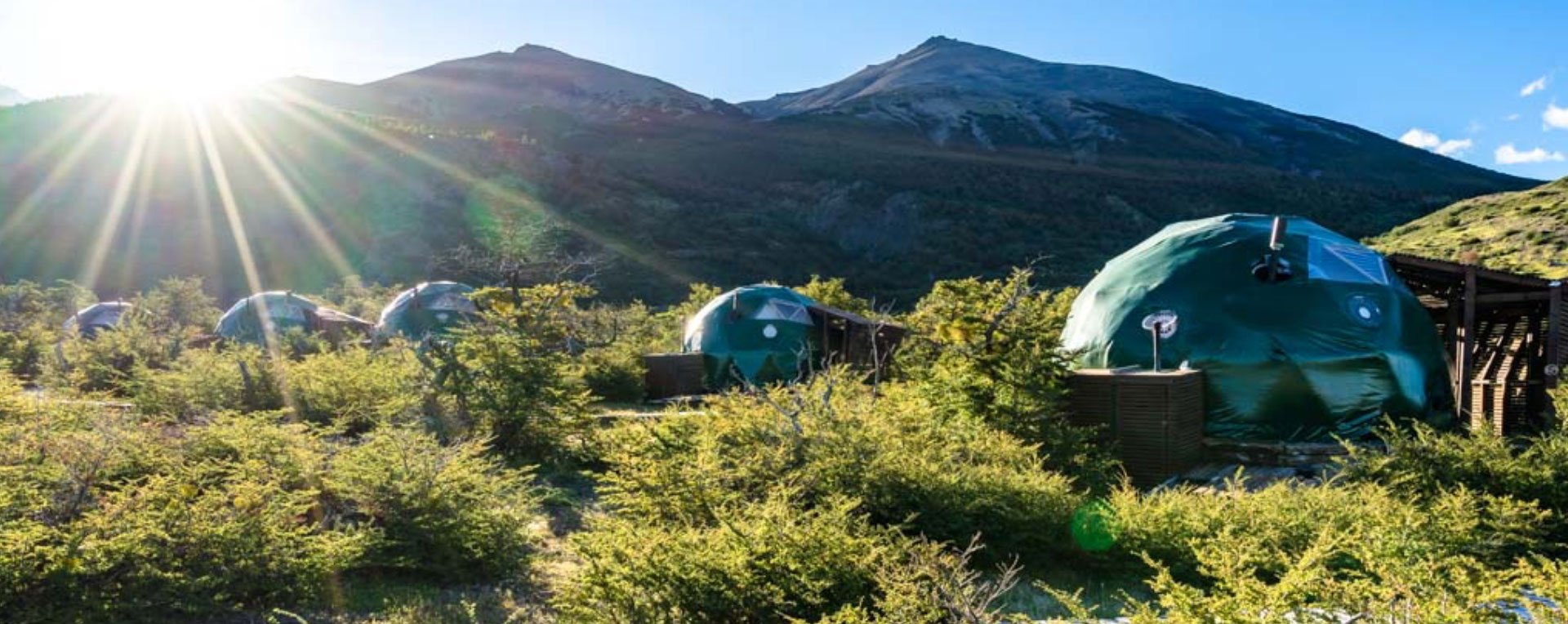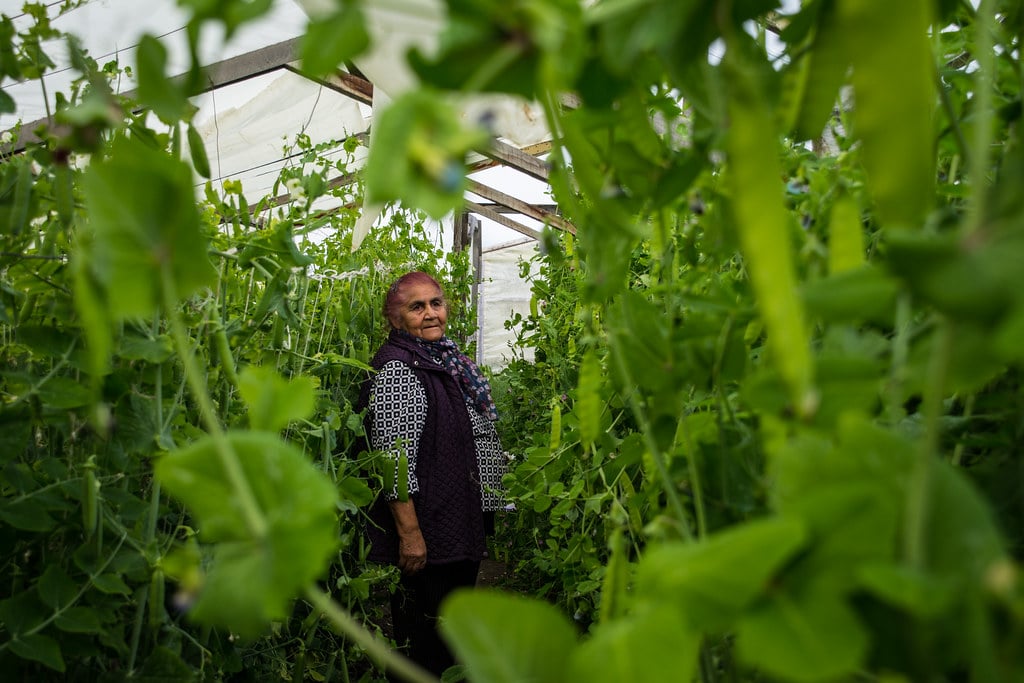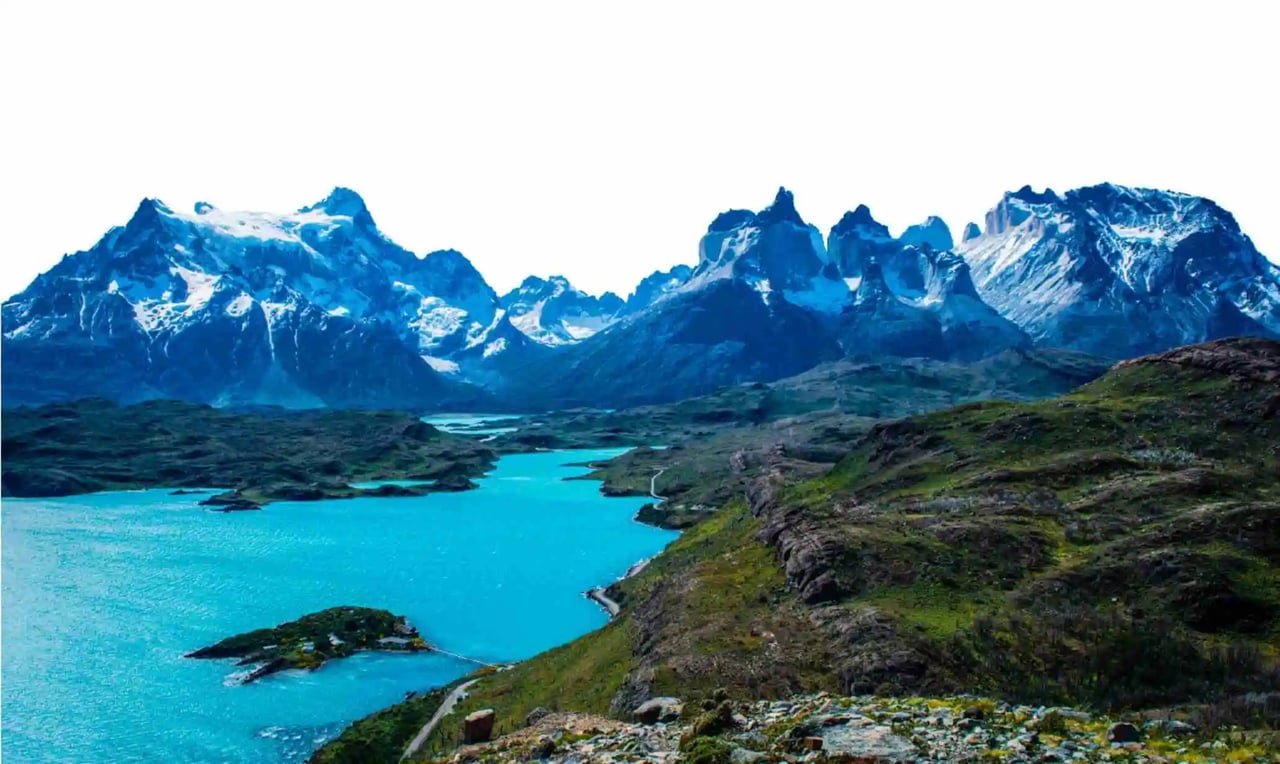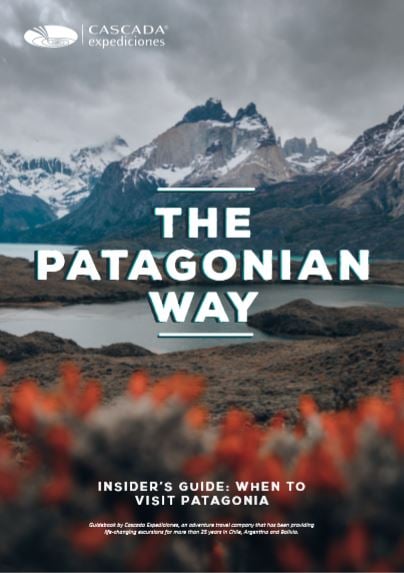Awareness about the advantages of consuming locally produced products luckily is growing. Everyone has their reasons: reducing their carbon footprint, helping local producers, eating healthier food, etc. However, in Patagonia the issue is even bigger: its remoteness makes importation necessary, yet expensive and environmentally unfriendly. When products are imported, a company’s carbon footprint increases, as a result of the significant and complex logistics involved.
More and more tourists come every year to Southern Chile to explore Torres del Paine National Park. The closest city to Torres del Paine is Puerto Natales, located about 112 km from the national park. As an eco tour provider with growing demand and limited suppliers, we continuously wonder how local tourism businesses like ourselves can provide more local products to their guests. We needed an expert to give us more insight, and were delighted to talk with Juan Colin, Head of Acquisitions at EcoCamp Patagonia, the first geodesic hotel in the world!
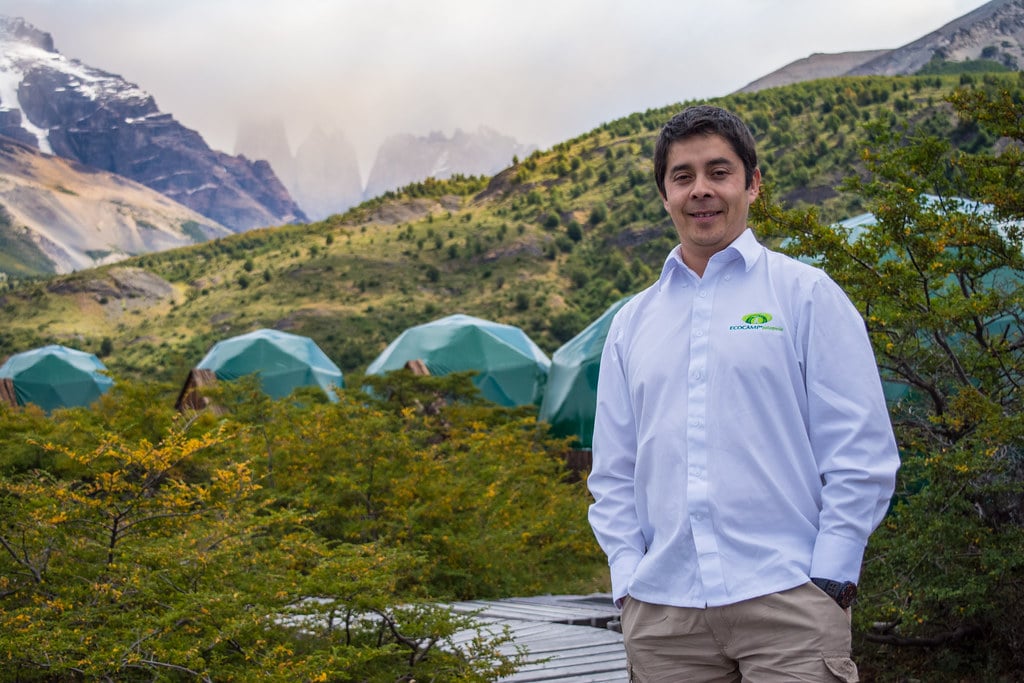 Juan Colin, head of Acquisitions at EcoCamp Patagonia
Juan Colin, head of Acquisitions at EcoCamp PatagoniaWhy consume local products?
In Chilean Patagonia, most products are imported. It is especially the case for fruits and vegetables, which are hard to grow here due to the extreme weather conditions. Sometimes, such products are imported from countries like China and United States. Due to the remoteness of the area, the logistics involved are large. Almost all the merchandise we import here in Puerto Natales comes through Punta Arenas, further in the South. Products come by truck or are shipped once a week. Therefore, consuming imported products means more fuel, more CO2 consumption, more food preservatives, more additives, and less consideration for local producers.
Consuming local products helps the local community. There are about 20,000 inhabitants in Puerto Natales, among them, hundreds of families who produce and sell products so we can avoid buying them from outside. Consuming locally outsourced products reduces the amount of fuel burnt on transportation and storage, and therefore CO2 emissions - which is good in the fight against global warming! Also, choosing local producers allows us to know where the products come from. We can ensure goods are organic and can make sure the food is healthier. And of course, local food is tastier!
How does EcoCamp Patagonia choose its suppliers?
First of all, we study our requirements. We listen to what the guests want and think about what we want to offer them. Then we distinguish what can be found locally with what has to come from the outside. As for the local producers, we complete a field visit to check they comply with our criteria of quality and sustainability. EcoCamp complies with ISO 9001 and ISO 14001, as certified by SGS, meaning we have to ensure the highest standards of management principles and environmental management. Because of this, it’s important to work with reliable, punctual, sustainable and family-owned businesses. After we choose them, we visit regularly to maintain the relationship and make sure the quality and sustainability remains the same.
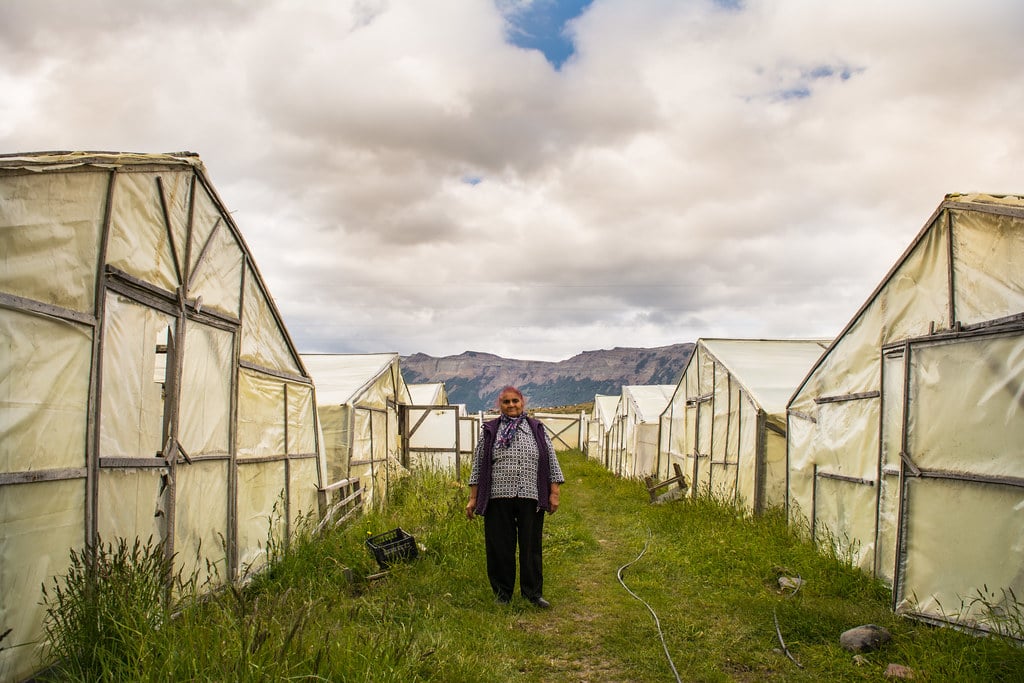 A sustainable farm nearby Puerto Natales owned by Mrs. "Rosa"
A sustainable farm nearby Puerto Natales owned by Mrs. "Rosa"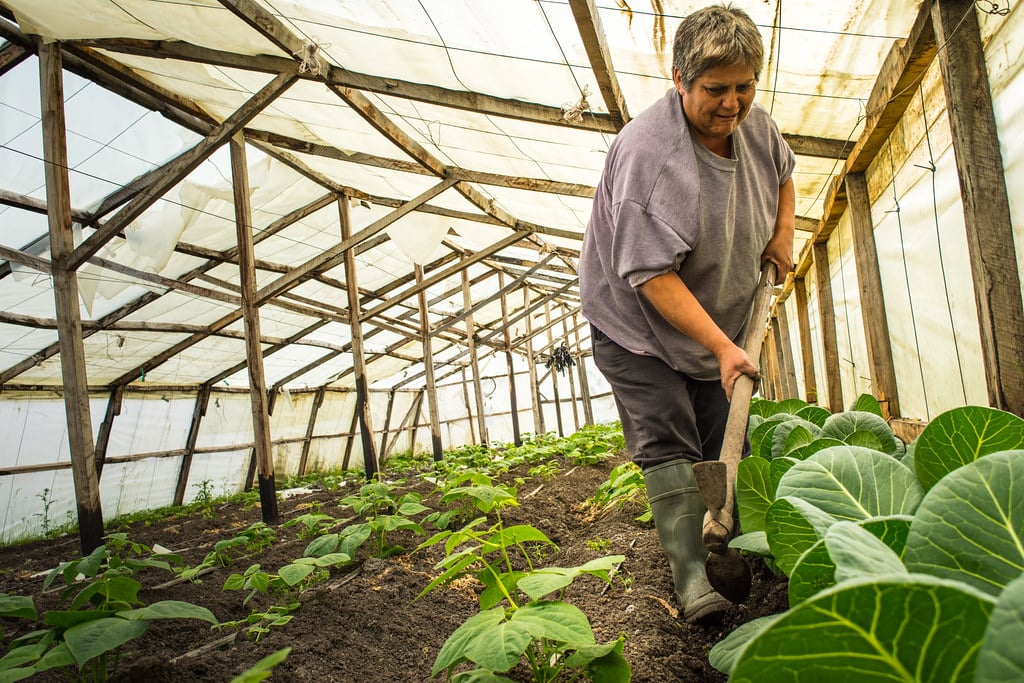 A woman is helping Rosa (her mother) to take care of the family-owned organic farm
A woman is helping Rosa (her mother) to take care of the family-owned organic farmWhat can be produced locally, and what cannot?
All our logistics are based in Puerto Natales. We buy everything there. About 45% of our products are directly produced locally. This is way above average, as many products cannot be produced here. For example, we have to import sugar, rice, oil and milk, as these items are impossible to produce in Patagonia. Nevertheless, wherever possible, we choose Chilean products and support cooperatives instead of large companies. Products such as vegetables, bread, meat (for example sheep, beef, pork), seafood (the local specialty is king crab) and fish are produced locally. Some local food highlights, such as salmon and king crab, are 100% from Patagonia. We recently opened a greenhouse, so that we can grow our own condiments at EcoCamp. As for the service providers, we are proud to outsource our laundry to a family in Puerto Natales. This is their only source of income - and they are doing fine!
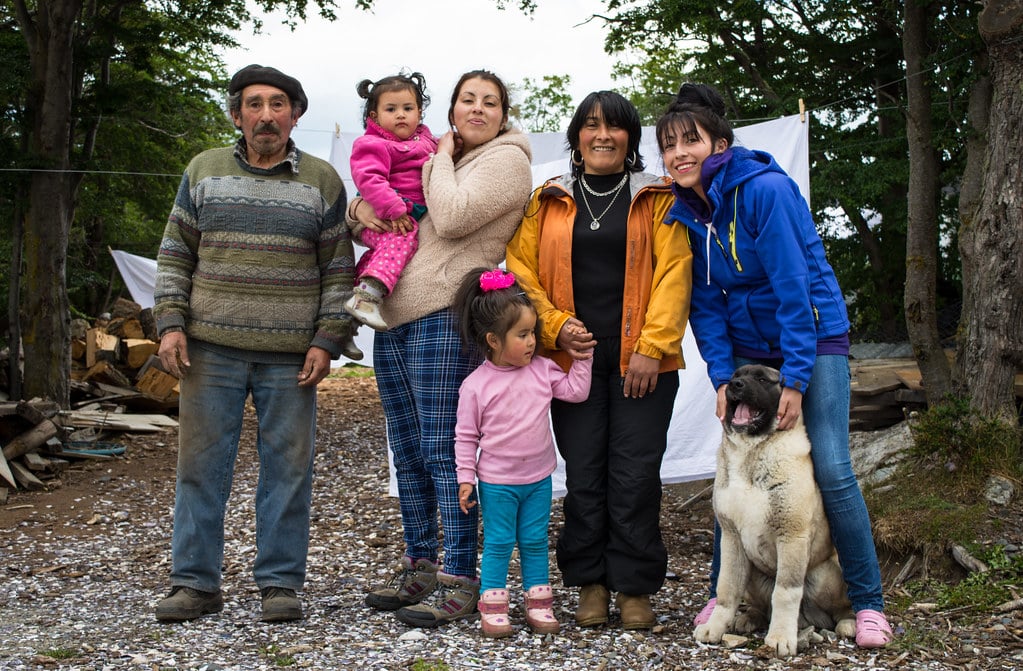 The "laundry family" close to Puerto Natales
The "laundry family" close to Puerto Natales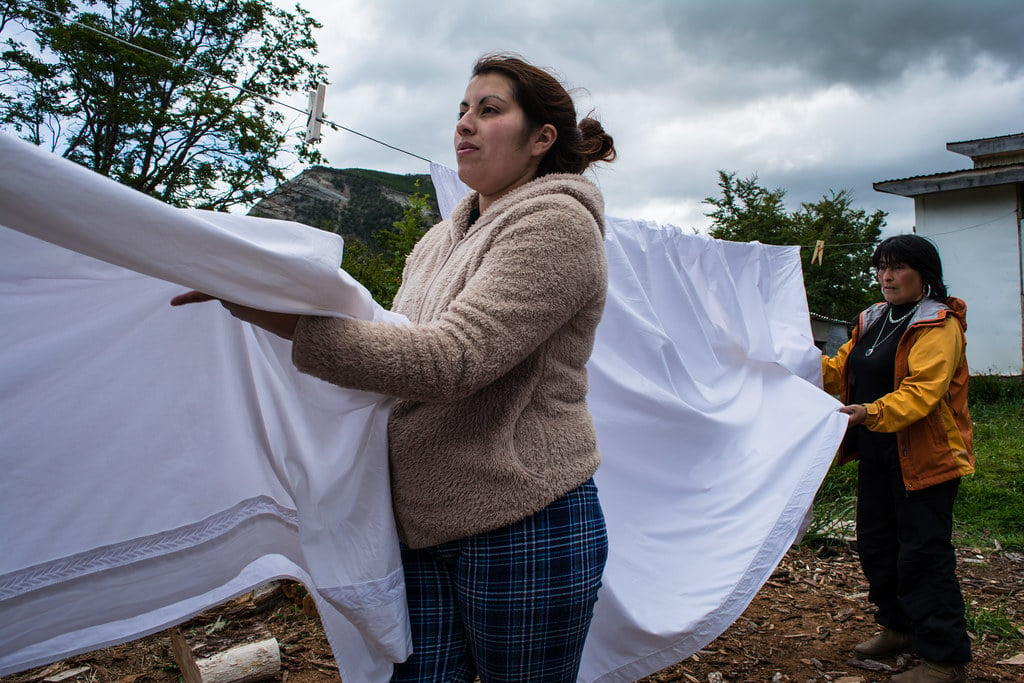 Mother and daughter washing EcoCamp's sheets in the peace of the Patagonian countryside
Mother and daughter washing EcoCamp's sheets in the peace of the Patagonian countryside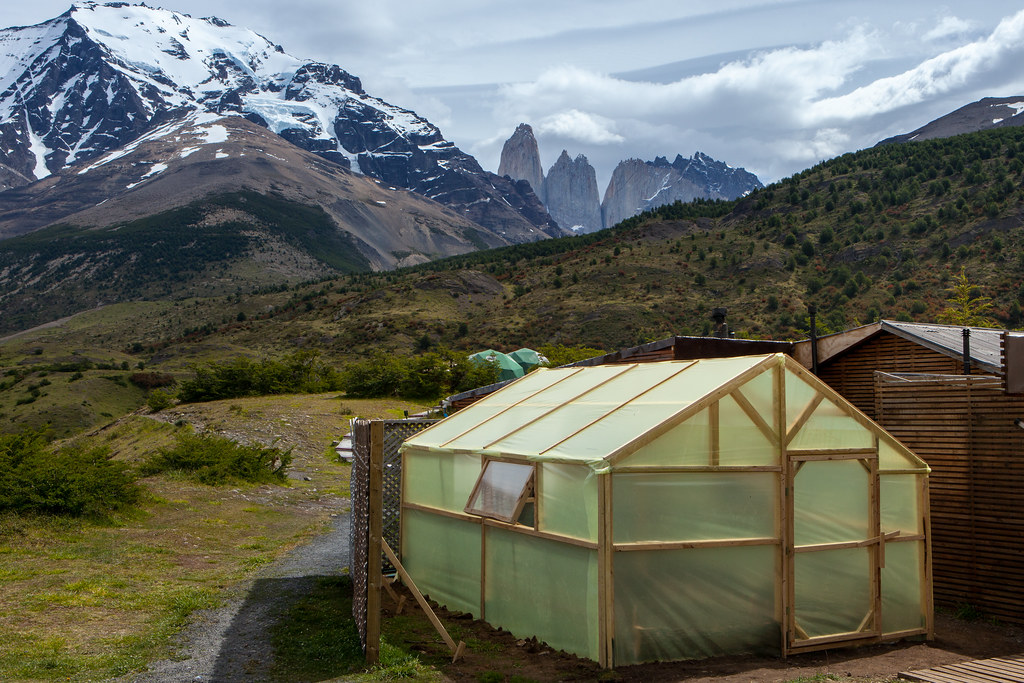 The newborn greenhouse at EcoCamp!
The newborn greenhouse at EcoCamp!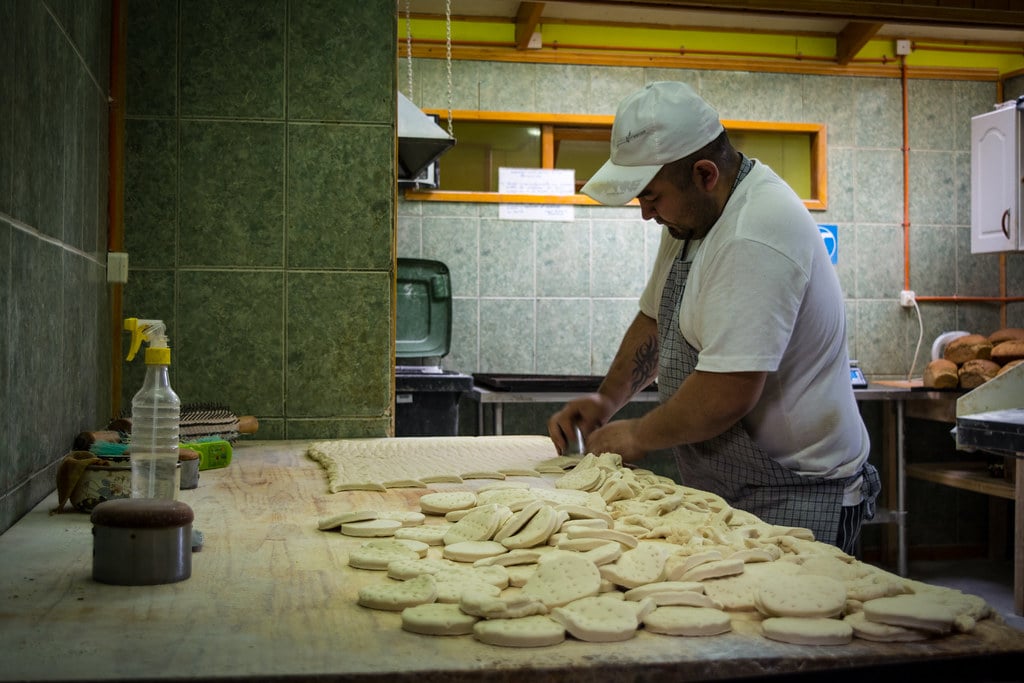 Preparing the EcoCamp bread in a Puerto Natales bakery
Preparing the EcoCamp bread in a Puerto Natales bakeryHow do you support the local community?
Apart from the providers we work with, we employ local manpower whenever possible. We also have an intern program with a college in Puerto Natales (the Liceo Politecnico Cruz Martinez), which allows students to work in various areas of the company (housekeeping, kitchen, maintenance, and dining room). Environmental education is included in the program. Also, we donate our excess food to people in Puerto Natales, such as in the retirement home.
Thanks, Juan!
It’s obvious that working with local producers has benefits for the community, the environment and our health. And, most beautifully, behind the curtain there are dozens of families and voices we wanted to hear. In Puerto Natales, we met some of the people who provide their precious services to EcoCamp Patagonia - and their lives definitely convinced us of the positive effects of sourcing locally produced goods. Meet two of them!
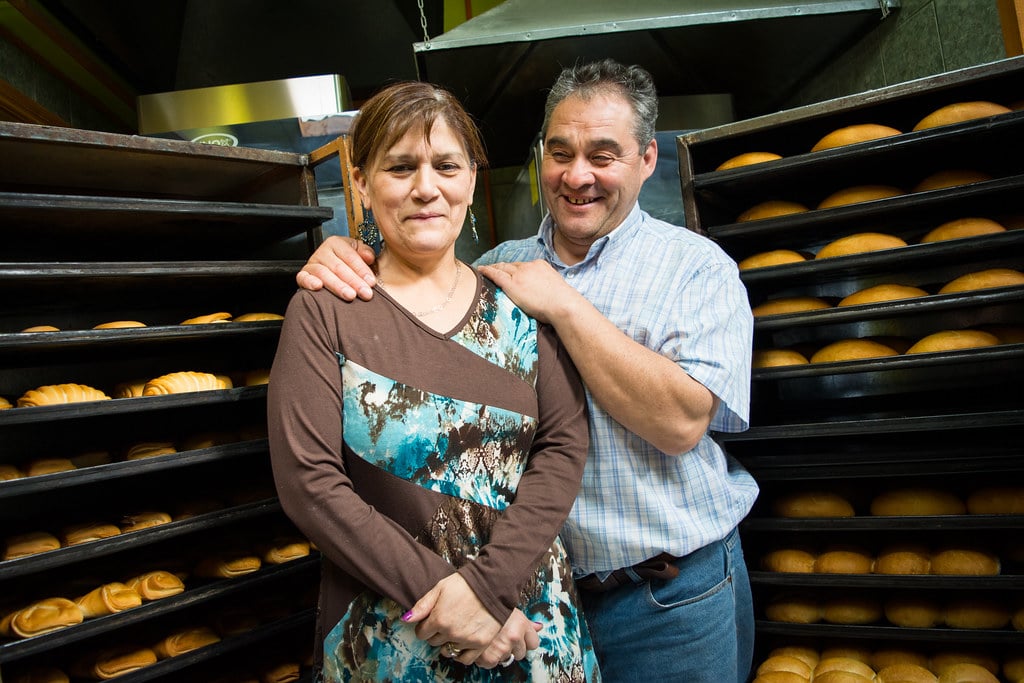 Miguel and Rosa's bakery has been supplying EcoCamp for years
Miguel and Rosa's bakery has been supplying EcoCamp for yearsMiguel, baker in Puerto Natales: We founded the bakery 5 five years ago. I work with Rosa, my wife, and my two daughters. Working with a hotel like EcoCamp allows us to have good and sustainable income. We are glad to have grown and to be able to employ workers ourselves: eight people now work permanently for our bakery!
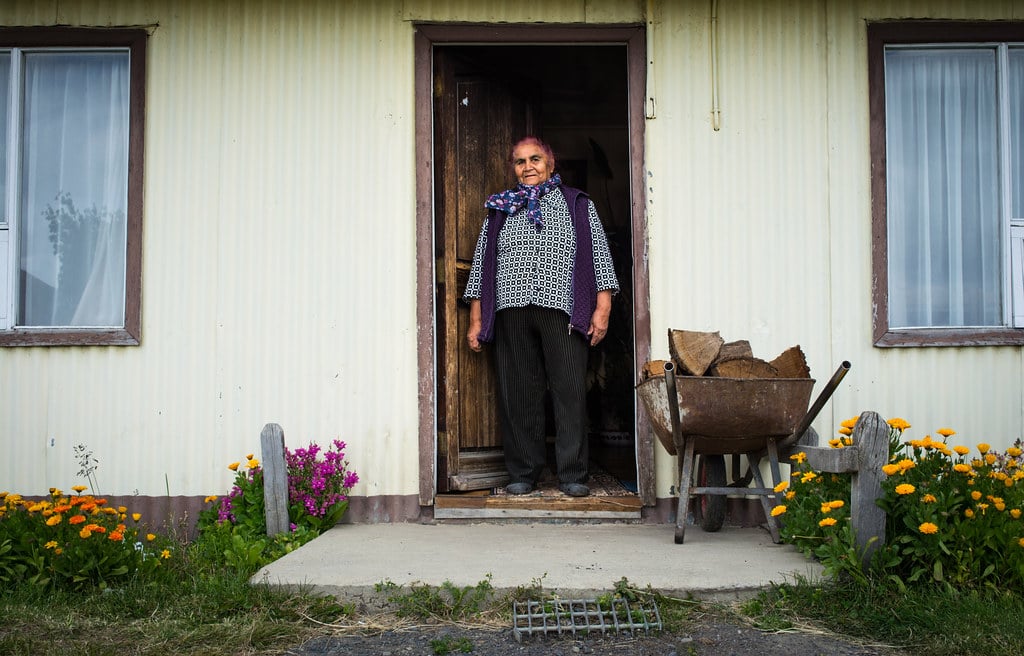 Rosa supplies EcoCamp with fresh fruits and vegetables
Rosa supplies EcoCamp with fresh fruits and vegetablesRosa, farmer in Puerto Natales: Before having the farm, we sold potatoes and oats. We’ve now owned the farm for five years and things are going well. We have 10 hectares! We have three permanent workers, and my daughters regularly come and help us. I have five children! We use neither pesticides nor additives, instead, we use the sheep droppings to work the soil, which is excellent for our fruits and vegetables. Here we grow lettuce, strawberry, cucumbers, tomatoes, potatoes, beans, onions, garlic, flowers and much more!
Do you want more information? Visit cascada.travel and learn about our programs

